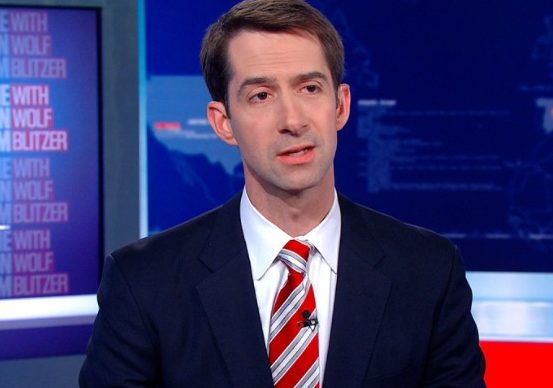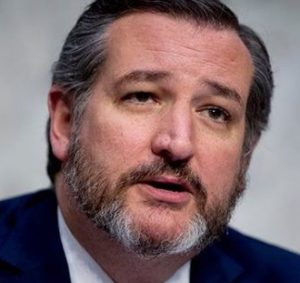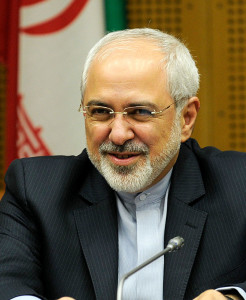August 09, 2019
by Warren L. Nelson

The Trump Administration has taken the highly unusual action of sanctioning Iranian Foreign Minister Mo-hammad-Javad Zarif—but the odd new policy was actually just a political ploy to placate ultra-right GOP senators while the Administration approved waivers of sanctions on several projects inside Iran.

The actions taken July 31 were actually to the benefit of the Islamic Republic—both in political terms as well as policy terms.
Politically, the Islamic Republic jumped on the announcement of sanctions on Zarif, telling the Iranian public the action was further evidence that the United States does not actually want to talk with Iran but just seeks to bully it. Zarif took personal pride in the designation, saying it showed that the Americans feared him and his diplomatic skills.
He expressed great pride in being sanctioned and paraded it as a badge of success. A week after the announcement, he was still making daily speeches about it. Long attacked by hardliners as having been fooled by the Americans in the nuclear negotiations, he painted the sanctions as proof that he had actually taken advantage of the Americans.

Around the world, many were horrified by the US decision, saying it meant the United States was shutting the door on diplomacy because the sanctions meant Zarif would be denied a visa to come to the United Nations. The New York Times, The Wall Street Journal and The Washington Post all spoke of the threat to diplomacy from denying Zarif a visa.
But the United States didn’t cancel Zarif’s visa. A State Department official briefing reporters said Zarif’s travel to the UN would be considered on a “case-by-case basis.” But a written explanation of “sanctions implications” issued by the Treasury Department, which oversees the sanctions, said, “All property and interests in property of this individual that are in the United States or in the possession or control of US persons must be blocked….Furthermore, any foreign financial institution that knowingly conducts or facilitates a significant transaction for or on behalf of the individual designated today could be subject to US correspondent account or payable-through sanctions.”
The announcement said not a word about visas, meaning the visa denial option in sanctions had not been imposed.
Zarif long ago said he closed his New York bank account in 2013 when he was shifted from the post of ambassador to the UN to become foreign minister in Tehran. He has said he owns nothing in the United States, which would mean the new sanctions would have no economic impact on him at all.
Just a few hours after the Treasury Department announced the new sanctions on Zarif, National Security Adviser John Bolton announced that the United States had decided to extend 90-day waivers allowing five projects in Iran to continue without making the Britons, Russians and Chinese who participate in them subject to sanctions.
Those projects were all authorized by the Joint Comprehensive Plan of Action (JCPOA) or nuclear agreement reached in 2015. They include safety projects at the Bushehr Nuclear Power Plant that the Russians are helping with, changes at the Fordo centrifuge plant so the centrifuges can do medical work but not make bomb material, and the conversion of the Arak heavy water plant so its reactor will not produce bomb-grade plutonium—a project being handled by the Chinese and British.
The Trump Administration issued 90-day waivers from sanctions last year when it dropped out of the deal to enable those projects to continue, since they are very much in US interests. The 90-day waivers have been renewed periodically since then.
But some ultra-conservative Republican senators—including Tom Cotton of Arkansas and Ted Cruz of Texas—mounted a concerted effort in recent weeks to kill the waivers.
At the White House, Bolton reportedly lined up with the senators. But Treasury Secretary Steven Mnuchin loudly objected. Not only were the waivers in US interests, he argued, but a refusal to issue the waivers would mean the United States would have to sanction the Britons, Russians and Chinese who continue to work on those projects, further feeding tensions with those countries.
The decision to sanction Zarif was simply a political trade to enable the Trump Administration to issue the waivers without roiling the waters within the GOP. And while no one has stood up and said outright that there was a deal, Senators Cotton and Cruz have said not a word about the renewal of the waivers.
In announcing the waivers, Bolton emphasized that they are good for only 90 days. That suggests the argument may be re-ignited within the Administration in late October. The sanctions on Zarif, however, are permanent—so the same ploy cannot be used again.
The announcement of the sanctions on Zarif said he was being targeted because he acts as an agent of Supreme Leader Ali Khamenehi, who was sanctioned June 24. Mnuchin announced then that Zarif would be sanctioned the next week. But that move was canceled, apparently as officials became convinced it was silly and would result in more criticism of the Trump Administration than any benefit to be achieved. But with the need to buy the silence of senators like Cotton and Cruz on the waivers, the Zarif ploy was resurrected.
The Treasury Department said it imposed sanctions “because Zarif acted or purported to act for or on behalf of, directly or indirectly, the Supreme Leader of the Islamic Republic of Iran.” That, of course, could be said of every employee of the Iranian state.
Secretary of State Mike Pompeo added, “Iran’s Foreign Ministry is not merely the diplomatic arm of the Islamic Republic, but also a means of advancing many of the Supreme Leader’s destabilizing policies…. Foreign Minister Zarif is a key enabler of Ayatollah Kha-menehi’s policies throughout the region and the world. The designation of Javad Zarif today reflects this reality.”
In Iran, the story was given by far the greatest attention of the news cycle, with politicians lining up at the microphones to have a say. The Pasdaran issued a statement calling the US action “ridiculous, illegal and unwise…. The Americans … are exposing their anger over how widely the message of the Islamic Revolution has been spread.”
President Rohani personally weighed in. “They [Americans] are resorting to childish behavior…. They were claiming every day, ‘We want to talk with no preconditions,’ … and then they sanction the foreign minister…. A country that believes it is powerful and a world superpower is afraid of our foreign minister’s interviews…. When Dr. Zarif gives an interview in New York,… they say Iran’s foreign minister is misleading public opinion. What happened to your claims of liberty, freedom of expression and democracy?” The sanctions, however, will have no impact on Zarif’s ability to give interviews to American media.
At the Foreign Ministry, spokesman Abbas Mousavi said, “The Americans have a strong fear of the logic of Dr. Zarif and his negotiating skills.”
In one of the odder developments, Zarif said he had met with Republican Sen. Rand Paul of Kentucky on his last trip to New York and that Paul had conveyed an invitation to meet President Trump in the White House. But Zarif said he was also told that if he refused to meet Trump, he would be sanctioned. Many analysts did not believe Trump would ever invite Zarif to the White House inner sanctum. Furthermore, it was only five days after the sanctions were announced that Zarif came up with this story, which many did not find credible.
Paul’s office did not respond to a request from the Iran Times for comment.
